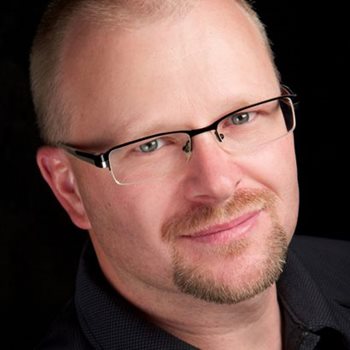Why do some Evangelicals support politicians who stoke division and demonstrate behaviour inconsistent with our stated theological convictions?
Let us consider this important question using the family history of co-author Johannes Reimer.
 My family is of German origin but emigrated to Russia in 1804. We never experienced Hitler’s Third Reich, except the cruel retaliation of the Soviets on Russian Germans like us after the Second World War. We were welcomed warmly into Germany in 1976 as outcasts from the Soviet Union.
My family is of German origin but emigrated to Russia in 1804. We never experienced Hitler’s Third Reich, except the cruel retaliation of the Soviets on Russian Germans like us after the Second World War. We were welcomed warmly into Germany in 1976 as outcasts from the Soviet Union.
Only years later did I investigate the story of the Nazi regime. I had deeply admired the pietist theologian Erich Sauer, until I learned of Sauer’s role during Nazi rule. New questions unsettled me. Sauer was a faithful Nazi who called Adolf Hitler “our beloved fuehrer.” He signed his letters “heil Hitler.”
This practice was shared by many other Pietists, Baptists, Methodists, Mennonites and other Evangelical Free churches (see German-language sources in this article). In July 1937 the Methodist bishop F.H. Otto Melle at the Ecumenical World Conference at Oxford praised Nazi politics and the “divine sending” of Adolf Hitler. He disparaged Christians in Germany who were critical of the regime.
Most German evangelical Christians welcomed Adolf Hitler. Few warned their churches. Some did resist, of course. The names of heroes like Dietrich Bonhoeffer (see books by Peter Matheson and Victoria Barnett) still stand as beacons and their courage cannot be praised enough. Many, however, stayed indifferently silent even after news of millions of Jews being killed became public.
How did Evangelicals, claiming to follow the voice of the Lord, miss what was clearly anti-Christian and anti-human?
Can we learn from the past?
 Researchers point at the disorder, moral decay and fear of rising communism in Eastern Europe that threatened the German Weimar Republic as reasons for this evangelical blindness. Hitler promised to restore law and order and Germany’s dignity and national strength after the humiliations of the First World War. Others point to the generally accepted anti-Semitic spirit in German churches.
Researchers point at the disorder, moral decay and fear of rising communism in Eastern Europe that threatened the German Weimar Republic as reasons for this evangelical blindness. Hitler promised to restore law and order and Germany’s dignity and national strength after the humiliations of the First World War. Others point to the generally accepted anti-Semitic spirit in German churches.
Evangelicals, seeing in Hitler a figure able to protect them from persecution and destruction, tragically ignored great blind spots. His rhetoric against certain amoral movements and a quasi-religious justification of strong governmental measures excited many Christians, especially those with a politically disinterested mindset. Self-protection seems why they were unable to see the futility of a political administration which soon turn infamously destructive.
Today no Christian celebrates Hitler’s “divine” calling. The diabolical nature of Nazism is clear. And yet, today, we see worrisome examples of Christians all too willing to support contemporary political groups that promise to end chaos and moral decay – and even use force to drive their agendas.
Can we learn from the past?
Just a few generations ago Evangelicals fell into the Nazi trap because of:
- Apolitical and less reflective thinking
- Preoccupation with their own safety
- Concentration on certain moral behaviour as existentially central
- Deep fear of communism
- Nationalistic, ethno-centric orientation.
A politician ready to join this battle and justify their fears was interpreted as God’s divine intervention. Disastrously, as we can see now, signs of blatant anti-Christian spirit were overlooked.
The danger of losing perspective
It is dangerous to stay apolitical and lose a gospel perspective. In Germany it did not take long for passionately welcomed law and order politics to turn against Christians themselves and bring a great national shame that still lingers.
It is important to learn from the patterns of history. As followers of Jesus and citizens of the Kingdom of God we do not push our own limited political agendas. Our primary aim as ambassadors of Christ is to follow the Holy Spirit as we proclaim and demonstrate the gospel, pursue justice and seek the blessing and wholeness of our communities. It is not national states or political leaders in whom we trust, but our Lord whom we serve.
We serve His kingdom, not our own. His kingdom does not exclude others at the expense of our own comfort but reaches out to all peoples to make disciples of the Great King, Jesus our Lord (Matthew 28:18-20).
Evangelicals need a clear theology of evangelical political involvement. We must understand the correlation between God’s mission in the world and our political responsibility.
We must engage the disorder and amorality in our societies, but in the Spirit of love, justice and humility that is seen in the Lord of all, Jesus Christ, whom we serve and follow. This must include obeying God before the rulers of our day (Acts 5:29). Our citizenship is in heaven (Philippians 3:20), but our mission is on earth and in the assignments and localities God has given (Matthew 6:10; Acts 17:26).
We invite our fellow Evangelicals to discuss these issues in these politically turbulent and conflicted days.
Dr. Johannes Reimer is professor for mission studies and intercultural theology at Ewersbach University of Applied Arts, Germany, and professor extraordinarius of missiology at the University of South Africa.  Phil Wagler is North American network coordinator for the World Evangelical Alliance’s Peace & Reconciliation Network and lead pastor of Kelowna Gospel Fellowship in British Columbia. Photo of game letters by Wokandapix on Pixabay. This blog series is produced in collaboration with the WEA PRN. Read all the posts at faithtoday.ca/reconciling.
Phil Wagler is North American network coordinator for the World Evangelical Alliance’s Peace & Reconciliation Network and lead pastor of Kelowna Gospel Fellowship in British Columbia. Photo of game letters by Wokandapix on Pixabay. This blog series is produced in collaboration with the WEA PRN. Read all the posts at faithtoday.ca/reconciling.